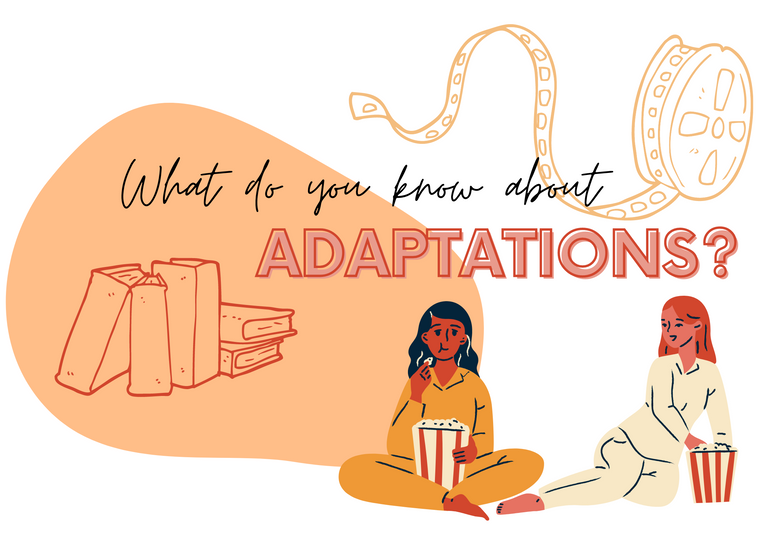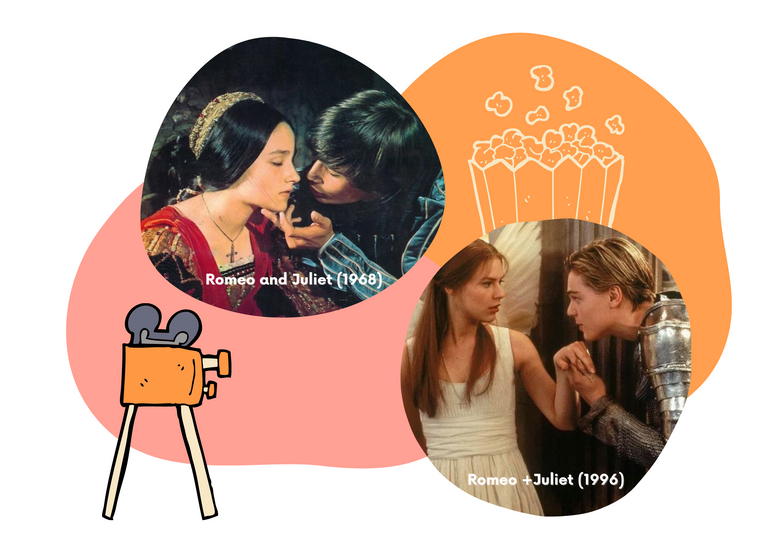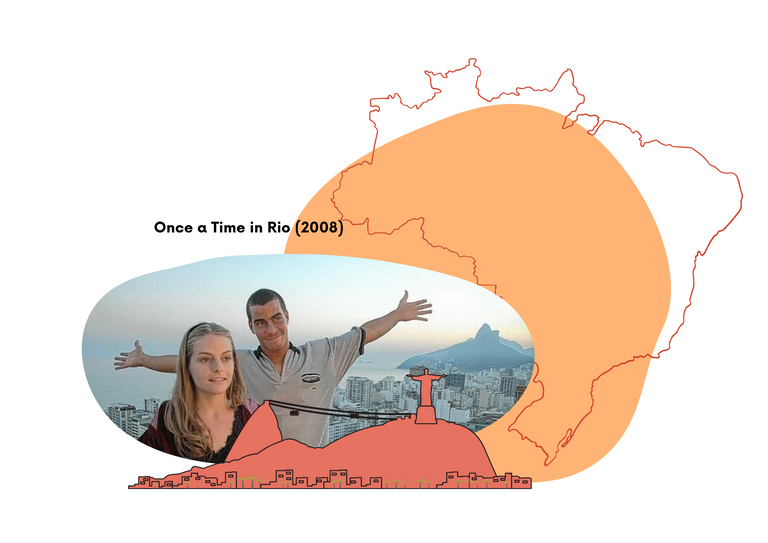
Hi, my name is Aline and i'm a brazilian film student. This is my first post in this amazing community and i want to share what i learned about adaptations.
It is completely normal to be excited to watch a movie / series that is an adaptation of a book / comic that is very loved by us. With so many expectations, arriving in the cinema room (before the pandemic), or on our sofa, we are anxious about certain scenes that have already crossed our minds. The film goes on ... and nothing. A certain character did not appear, a scenario arose that did not exist in the original work, the main actor is completely different from the book ... argh! Such disappointments leave us heartbroken. You probably end up hating the movie and giving a bad rate in your Letterboxd. You have complete freedom to hate an adaptation, but what you need to know is that an adaptation does not need (and should not) be identical to the original work.
According to Julie Sanders' text, called "Adaptation and Appropriation", one of the main functions of adaptation is to make some texts and works more accessible and understandable to new audiences. After all, watching a movie with the script written as Shakespeare wrote, in theatrical format and with much older and far-fetched language, would be torturous for our generation.
In hypertextuality, adaptation is the process of transferring the work from one genre to another. And that doesn't happen only from books to movies, but also from books to comics, poem to fiction story, a play to a musical, or the reverse, and we have many other examples.
What we need to understand is that the adaptation is a reinterpretation of works already produced, which in addition to being produced in new formats, can also bring different and current social and cultural contexts.
Julie Sanders also quotes Deborah Carmell, who with her studies brought us the definitions of 3 types of adaptations: the first is transposition, the second is the commentary and the third is the analogy.
The transposition adaptation is when, in addition to the work being adapted to another format, it is also transposed to another geographical and / or cultural scenario. A great example that illustrates very well is Romeo and Juliet, a play that takes place around 1600, in Verona, Italy. In 1968, Franco Zeffirelli made a beautiful adaptation very close to the original work, remaining the same context and geographical setting. But it remains an adaptation since the play was adapted for a script, removing scenes and reducing the complexity of secondary characters. In Romeo + Juliet, 1996, by Baz Luhrmann, the couple lives in a completely different geographic, political and cultural context. Instead of swords we see revolvers, instead of two rival families we see companies and gangs, Verona is replaced by Venice Beach. But the essence of the story and the message still the same. This is transposition.

To make it even better to compare, I will continue to use Shakespeare's Romeo and Juliet as a reference to talk about commentary and analogy.
In commentary, in addition to the original work being adapted, and often transposed, the comment is an inclusion of the director to debate / question some often political or cultural issue. I will bring as an example a Brazilian film, called Era Uma Vez (Once Upon a Time in Rio), directed by Breno Silveira in 2008. The structure is the same as Romeo and Juliet, although it is not the name of the characters, but the ending is the same. What changes is that it was transferred to Rio de Janeiro, where the main character is a white girl from a very wealthy family, and her boyfriend is a black boy who lives in a slum (which in Brazil we call Favela). The commentary proposed in this adaptation is a criticism about racism, which does`nt exist in the original play.

Finally, the analogy adaptation doesnt need to refer to the same structure as the original play. Do you know those films where there is a forbidden love, the families of the main characters do not like each other, but it does not necessarily have a tragic end? There is an analogy to Romeo and Juliet even indirectly.
In conclusion, for you to feel the impact of an adaptation will depend on how well you know the original work, and how aware you are that the text has been transformed into another format. And that the film was not written by the writer of the book, but by a screenwriter who is doing his own work of art. We need to understand that adaptations are a gift to fans, giving them the opportunity to relive the story in different ways.
(And there are no bad adaptations, only bad films 😆)
So, what is your favourite adaptation?
Bibliographic Reference: SANDERS, Julie. Adaptation and Appropriation (The new critical idiom). Routlege. 2005.
Images taken from Pinterest.
Design made by me. 🙃
I see that you are new, welcome to hive! it would be great if you give us an introduction about yourself. With an introduction that may help you find new friends and community here. 😊
Thank you for your kindness @macchiata! I made a brief introdution in an art group so i didn't know if i should do it again 😬 But in the next post of this community i'll introduce myself more properly! Thanks for the advice! 😊
Congratulations @alineax! You have completed the following achievement on the Hive blockchain and have been rewarded with new badge(s) :
Your next target is to reach 200 upvotes.
You can view your badges on your board and compare yourself to others in the Ranking
If you no longer want to receive notifications, reply to this comment with the word
STOPCheck out the last post from @hivebuzz:
You wrote very well on the subject, @alineax.
Welcome to our community.
Thank you for your kindness and feedback! 😊
You did real well